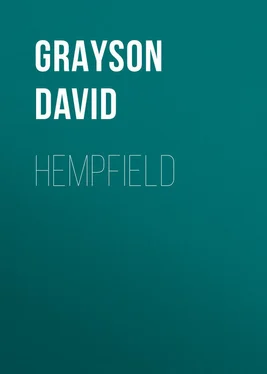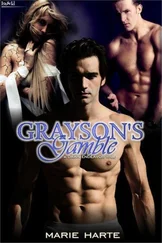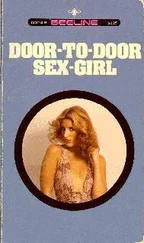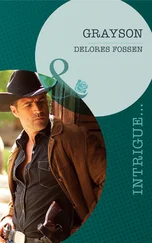David Grayson - Hempfield
Здесь есть возможность читать онлайн «David Grayson - Hempfield» — ознакомительный отрывок электронной книги совершенно бесплатно, а после прочтения отрывка купить полную версию. В некоторых случаях можно слушать аудио, скачать через торрент в формате fb2 и присутствует краткое содержание. Жанр: foreign_antique, foreign_prose, Историческая проза, на английском языке. Описание произведения, (предисловие) а так же отзывы посетителей доступны на портале библиотеки ЛибКат.
- Название:Hempfield
- Автор:
- Жанр:
- Год:неизвестен
- ISBN:нет данных
- Рейтинг книги:3 / 5. Голосов: 1
-
Избранное:Добавить в избранное
- Отзывы:
-
Ваша оценка:
- 60
- 1
- 2
- 3
- 4
- 5
Hempfield: краткое содержание, описание и аннотация
Предлагаем к чтению аннотацию, описание, краткое содержание или предисловие (зависит от того, что написал сам автор книги «Hempfield»). Если вы не нашли необходимую информацию о книге — напишите в комментариях, мы постараемся отыскать её.
Hempfield — читать онлайн ознакомительный отрывок
Ниже представлен текст книги, разбитый по страницам. Система сохранения места последней прочитанной страницы, позволяет с удобством читать онлайн бесплатно книгу «Hempfield», без необходимости каждый раз заново искать на чём Вы остановились. Поставьте закладку, и сможете в любой момент перейти на страницу, на которой закончили чтение.
Интервал:
Закладка:
He knew everybody, or nearly everybody, in the town, and treated every one, even his best friends, with a kind of ironical regard. He knew life well – all of it – and was rarely deceived by pretence or surprised by evil. Sometimes, I think, he armoured himself unnecessarily against goodness, lest he be deceived; but once having accepted a man, his loyalty was unswerving. He believed, as he often said, that the big things in life are the little things, and it was his idea of a country newspaper that it should be crowded with all the little things possible.
"What's the protective tariff or the Philippine question to Nat Halstead compared with the price of potatoes?" he would ask.
He was not at all proud, for if he could not get his pay for his newspaper in cash he would take a ham, or a cord of wood, a champion squash, or a packet of circus tickets. One of Anthy's early memories was of an odd assortment of shoes which he had accepted in settlement of an advertising account. They never quite fitted any one.
As he grew older he liked to talk with Anthy about his business, as though she were a partner; he liked especially to have her in the office helping him, and he was always ready with a whimsical or wise comment on the people of the town. He also enjoyed making sly jokes about his older brother, the Captain, and especially about the Captain's thundering editorials (which Anthy for a long time secretly admired, wishing her father had written them).
"Now, Anthy," he would say, "don't disturb your Uncle Newt; he's saving the nation," or "Pass this pamphlet along to your uncle; it will come in handy when he gets ready to regulate the railroads."
He was not an emotional man, at least to outward view; but once, on a Memorial Day, while the old soldiers were marching past the printing-office on their way to the cemetery, Anthy saw him standing by the window in his long apron, a composing stick in his hand, with the tears rolling unheeded down his face.
I think sometimes we do not yet appreciate the influence of that great burst of idealism, which was the Civil War, upon the lives of the men of that generation, nor the place which Lincoln played in moulding the characters of his time. Men who, even as boys, passed through the fire of that great time and learned to suffer with Lincoln, could never again be quite small. Although Anthy's father had not been a soldier – he was too young at the time – the most impressionable years of his boyhood were saturated with stories from the front, with the sight of soldiers marching forth to war, his own older brother, the Captain, among them, the sound of martial drums and fifes, and the heroic figures of wan and wounded men who returned with empty sleeves or missing legs. He never forgot the thrill that came with the news of Lincoln's assassination.
There was a portrait of Lincoln over the cases at the office, and another over the mantel in the dining-room – the one that played so important a part, afterward, in Anthy's life.
Sometimes, on a rainy Sunday afternoon, Anthy's father would get down a certain volume from the cases, and read Tom Taylor's tribute to the dead Lincoln. She could recall vividly the intonation of his voice as he read the lines, and she knew just where he would falter and have to clear his throat:
You lay a wreath on murdered Lincoln's bier;
You, who with mocking pencil wont to trace,
Broad for the self-complaisant British sneer,
His length of shambling limb, his furrowed face,
His gaunt, gnarled hands, his unkempt, bristling hair,
His garb uncouth, his bearing ill at ease,
His lack of all we prize as debonair,
Of power or will to shine, or art to please…
When he had finished reading, he would take off his spectacles and wipe them, and say to Anthy:
"Lincoln was the greatest man this country has ever produced."
He was a curious combination of hardheadedness, of ironical wisdom, and of humour, and somewhere, hidden deep within, of molten sentiment. He was a regular Yankee.
One night he got more than ordinarily tired, and just stopped. They found him in bed the next morning, his legs drawn up under the coverlet, a volume of Don Quixote open on his knees, his empty pipe fallen from his lips, the lamp dying out on a table near him. At his elbow were two of the inevitable yellow slips:
He never knew what a hero he was: he had made a living for thirty years out of a country newspaper.
Anthy came home from college to the forlorn and empty and ugly house – and it seemed to her that the end of the world had come. This period of loneliness made a deep impression upon her later years. When at last she could bear to open the envelope labelled: "To Anthy – in case of my death," she found this letter:
Dear Anthy: I am leaving the Star to you. There is nothing else except the homestead – and the debts. Do what you like with all of them – but look after your Uncle Newt.
Now, Anthy's earliest memories were bound up with the printing-office. There was never a time that she did not know the smell of printer's ink. As a child she had delighted to tip over the big basket and play with the paper ribbons from the cutting machine. Later, she had helped on press days to fold and label the papers. She was early a pastmaster in the art of making paste, and she knew better than any one else the temperamental eccentricities of the old-fashioned Dick labeller. She could set type (passably) and run the hand press. But as for taking upon herself the activities of her tireless father – who was at once editor, publisher, compositor, pressman, advertising solicitor, and father confessor for the community of Hempfield – she could not do it. There is only a genius here and there who can fill the high and difficult position of country editor.
The responsibility, therefore, fell upon the Captain, who for so many years had been the titular and ornamental editor of the Star . It was the Captain who wrote the editorials, the obituaries, and the "write-ups," who attended the political conventions, and was always much in demand for speeches at the Fourth of July celebrations.
But, strangely enough, although the Star editorials sparkled with undimmed lustre, although the obituaries were even longer and more wonderful than ever before – so long as to crowd out some of the items about Johnny Gorman's pigs and Mrs. Hopkins's visits to her sister, although the fine old Captain worked harder than ever, the light of the luminary of Hempfield grew steadily dimmer. Fergus saw it early and it distressed his Scotch soul. Anthy felt it, and soon the whole town knew of the decay of the once thrifty institution in the little old printing-office back from the street. Brother Kendrick, of that nefarious rag, the Sterling Democrat , even dared to respond to one of the Captain's most powerful and pungent editorials with a witticism in which he referred to the Weakly Star of Hempfield, and printed "Weakly" in capital letters that no one might miss his joke.
It was at this low stage in the orbit of the Star that I came first to the printing-office, trying to discover the man who could shout "Fudge" with such fine enthusiasm – and found myself, quite irresistibly, hitching my wagon to the Star .
CHAPTER IV
ENTER MR. ED SMITH
It is only with difficulty thus far in my narrative that I have kept Norton Carr out of it. When you come to know him you will understand why. He is inseparably bound up with every memory I have of the printing-office. The other day, when I was describing my first visit to the establishment of Doane & Doane, I kept seeing the figure of Nort bending over the gasoline engine. I kept hearing him whistle in the infectious low monotone he had, and when I spoke of the printing press I all but called it "Old Harry" (Nort christened the ancient Hoe press, Old Harry, which every one adopted as being an appropriate name). I even half expected to have him break out in my pages with one of his absurd remarks, when I knew well enough that he had no business to be in the story at all. He hadn't come yet, and Anthy and Fergus and the old Captain were positively the only ones there.
Читать дальшеИнтервал:
Закладка:
Похожие книги на «Hempfield»
Представляем Вашему вниманию похожие книги на «Hempfield» списком для выбора. Мы отобрали схожую по названию и смыслу литературу в надежде предоставить читателям больше вариантов отыскать новые, интересные, ещё непрочитанные произведения.
Обсуждение, отзывы о книге «Hempfield» и просто собственные мнения читателей. Оставьте ваши комментарии, напишите, что Вы думаете о произведении, его смысле или главных героях. Укажите что конкретно понравилось, а что нет, и почему Вы так считаете.












